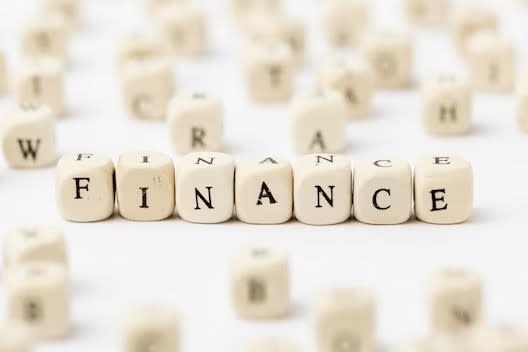
posted 9th January 2024
Financial Recovery After Divorce: Rebuilding Your Finances and Credit
Divorce is a challenging life event that can take an emotional and financial toll on individuals.
Amidst the emotional upheaval, it is crucial to address the financial aftermath of a divorce promptly. Rebuilding your finances and credit after divorce requires a strategic approach, incorporating prudent budgeting, effective debt management and a focus on improving credit scores.
I. Assessing the Financial Landscape
A. Taking Stock of Assets and Liabilities
The first step in the financial recovery process after divorce is to conduct a thorough assessment of your current financial situation. This involves taking stock of assets, liabilities, income and expenses. Compile a detailed list of all assets, such as property, bank accounts, investments and pension. Simultaneously, identify and categorize all debts, including mortgages, credit card balances and personal loans.
B. Establishing a Realistic Post-Divorce Budget
Once you have a clear picture of your financial landscape, create a realistic post-divorce budget. Consider your new living arrangements, child support or maintenance obligations, and any changes in income. A well-constructed budget serves as a roadmap for financial recovery, helping you allocate resources effectively and prioritize essential expenses.
II. Debt Management Strategies
A. Prioritizing and Restructuring Debt
In the aftermath of divorce, it's common for individuals to face a substantial amount of debt. Prioritize debts based on interest rates and urgency. High-interest debts, such as credit cards, should be addressed first. Explore options for restructuring debt, such as refinancing loans or negotiating with creditors for better terms. Establish a debt repayment plan that aligns with your budget and financial goals.
B. Seeking Professional Assistance
If the burden of debt seems overwhelming, consider seeking professional assistance. Financial counsellors and debt management agencies can provide valuable insights and help negotiate more favourable terms with creditors. They may also guide you through debt consolidation or settlement options, tailoring a strategy that aligns with your unique financial situation.
III. Rebuilding Credit Scores
A. Understanding Credit Reports
A divorce can impact your credit score, and it's essential to understand the factors that contribute to it. Obtain copies of your credit reports from major credit companies and review them carefully. Look for inaccuracies, such as joint accounts that should be closed or discrepancies in reported balances. Dispute any errors promptly to ensure that your credit report accurately reflects your financial status.
B. Establishing Individual Credit
In many marriages, joint accounts are common. As part of the divorce process, close joint accounts to prevent any future financial entanglements. Establish individual credit by opening new accounts in your name and ensuring that they are reported to the credit companies. This step is crucial for building a solid credit history as a single individual.
C. Consistent and Timely Payments
Timely payments are the cornerstone of a positive credit history. Ensure that all bills, including credit cards, loans and utility payments, are paid on time. Set up automatic payments or reminders to avoid late payments, as they can have a significant negative impact on your credit score.
D. Gradual Increase of Credit Limits
As your financial situation stabilizes, consider gradually increasing your credit limits. This can positively affect your credit utilization ratio, a key factor in determining your credit score. However, exercise caution and only increase limits if you can manage credit responsibly to avoid falling into debt again.
IV. Building Emergency Savings
A. Establishing an Emergency Fund
Financial setbacks can happen unexpectedly and having an emergency fund is crucial for maintaining stability. As part of your post-divorce financial plan, strive to build an emergency fund that covers three to six months' worth of living expenses. This fund acts as a financial safety net, providing a buffer in times of unexpected expenses or income disruptions.
B. Investing for the Future
Beyond emergency savings, focus on long-term financial goals, such as retirement and education funds for children. Consult with a financial advisor to develop an investment strategy that aligns with your risk tolerance and financial objectives. Consistent contributions to pensions and investment portfolios can help secure your financial future.
V. Reassessing Insurance Coverage
A. Adjusting Life Insurance Policies
If you have life insurance policies with your former spouse, reassess your coverage and beneficiaries. Update policies to reflect your current circumstances and protect the financial well-being of your dependents. Life insurance remains an essential component of a comprehensive financial plan, providing financial security for loved ones in the event of unforeseen circumstances.
VI. Seeking Professional Guidance
A. Legal and Financial Consultation
Navigating the financial complexities of divorce and recovery often requires professional guidance. Consult with legal and financial professionals who specialize in divorce-related matters. Financial advisors can provide strategic insights for post-divorce financial planning.
B. Financial Counselling and Education
Enlist the services of a financial counsellor or attend financial education programs to enhance your financial literacy. These resources can provide valuable insights into budgeting, investing and credit management. Strengthening your financial knowledge equips you with the tools needed to make informed decisions and build a secure financial future.
VII. Maintaining Emotional Well-being
A. Recognizing the Emotional Impact
Financial recovery after divorce is not only about numbers; it's also about emotional well-being. Acknowledge and address the emotional impact of divorce, as it can influence financial decisions. Seek support from friends, family, or counselling services to navigate the emotional challenges and make sound financial choices.
B. Balancing Short-Term and Long-Term Goals
Striking a balance between short-term financial needs and long-term goals is crucial. While addressing immediate concerns, keep an eye on the bigger picture. Establish financial goals that align with your aspirations, whether it's homeownership, travel, or retirement. This perspective provides motivation and a sense of purpose during the challenging process of financial recovery.
Rebuilding your finances and credit after a divorce is a multifaceted process that requires diligence, strategic planning and a commitment to long-term financial well-being. By taking proactive steps such as budgeting, managing debt and improving credit scores, individuals can overcome the financial challenges posed by divorce and create a solid foundation for a secure and prosperous future.
Remember, financial recovery is a journey and with the right strategies and mindset, you can emerge from the experience stronger and more financially resilient than ever before.
This guide is for information purposes only and not to be construed as legal or financial advice.


